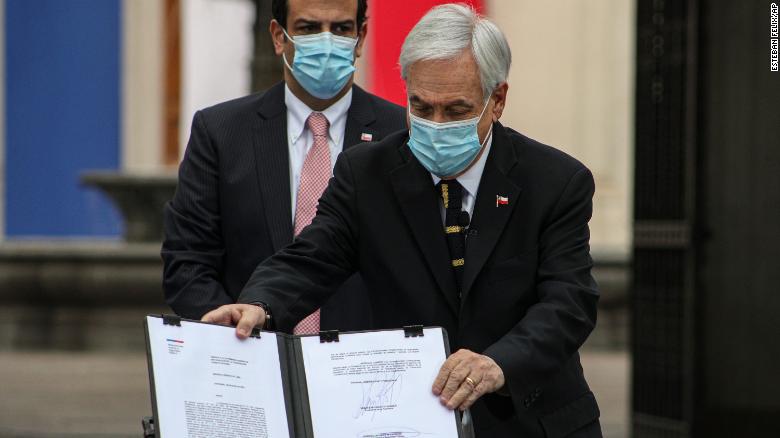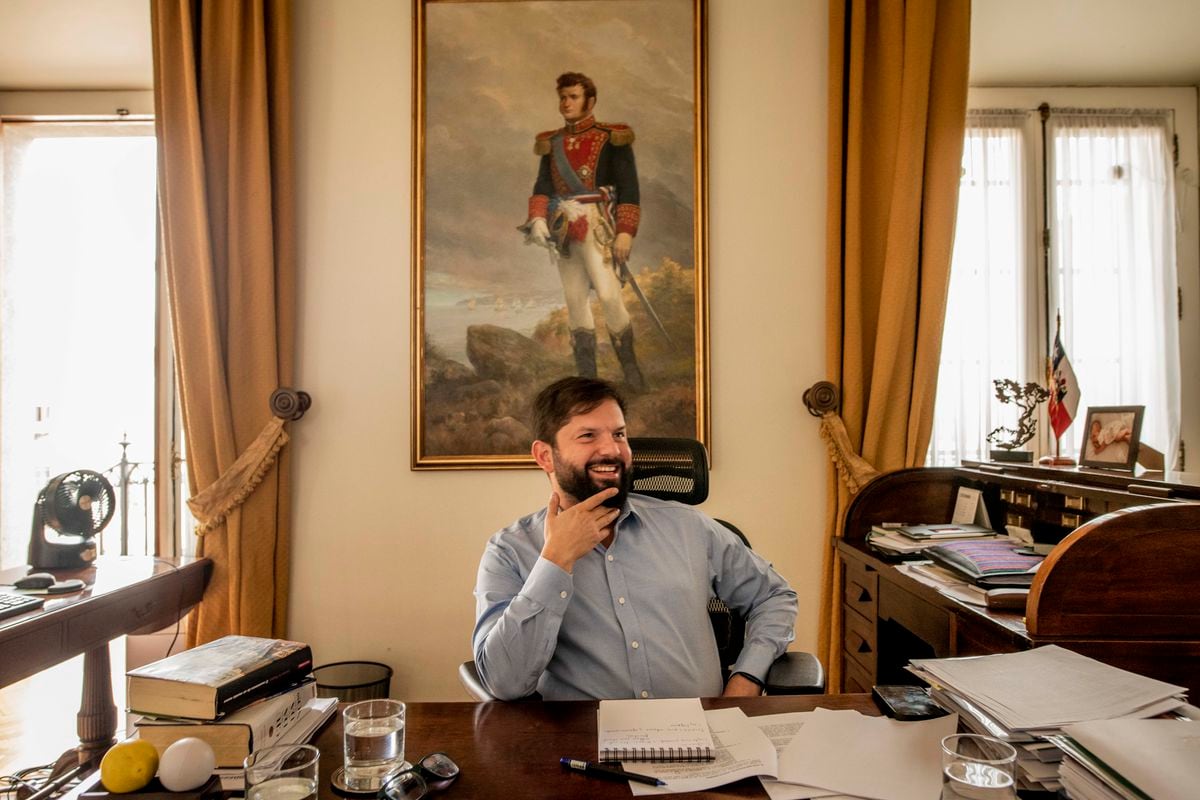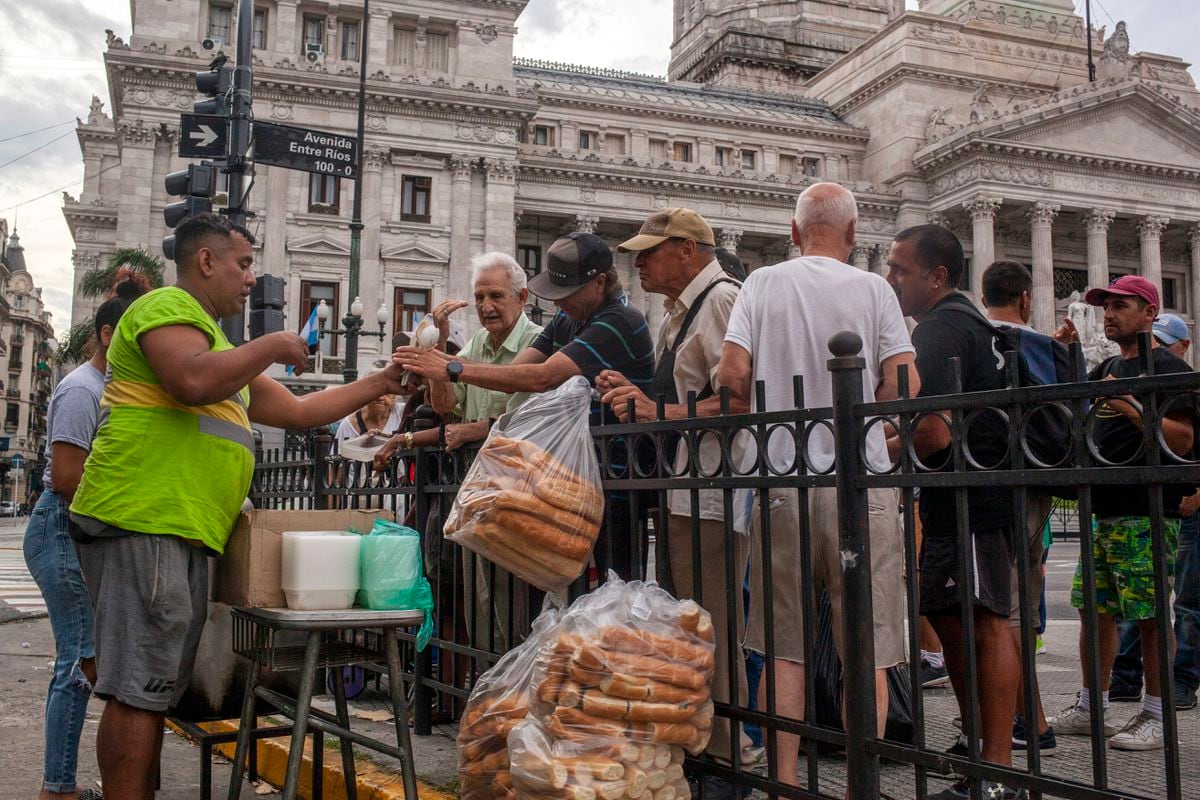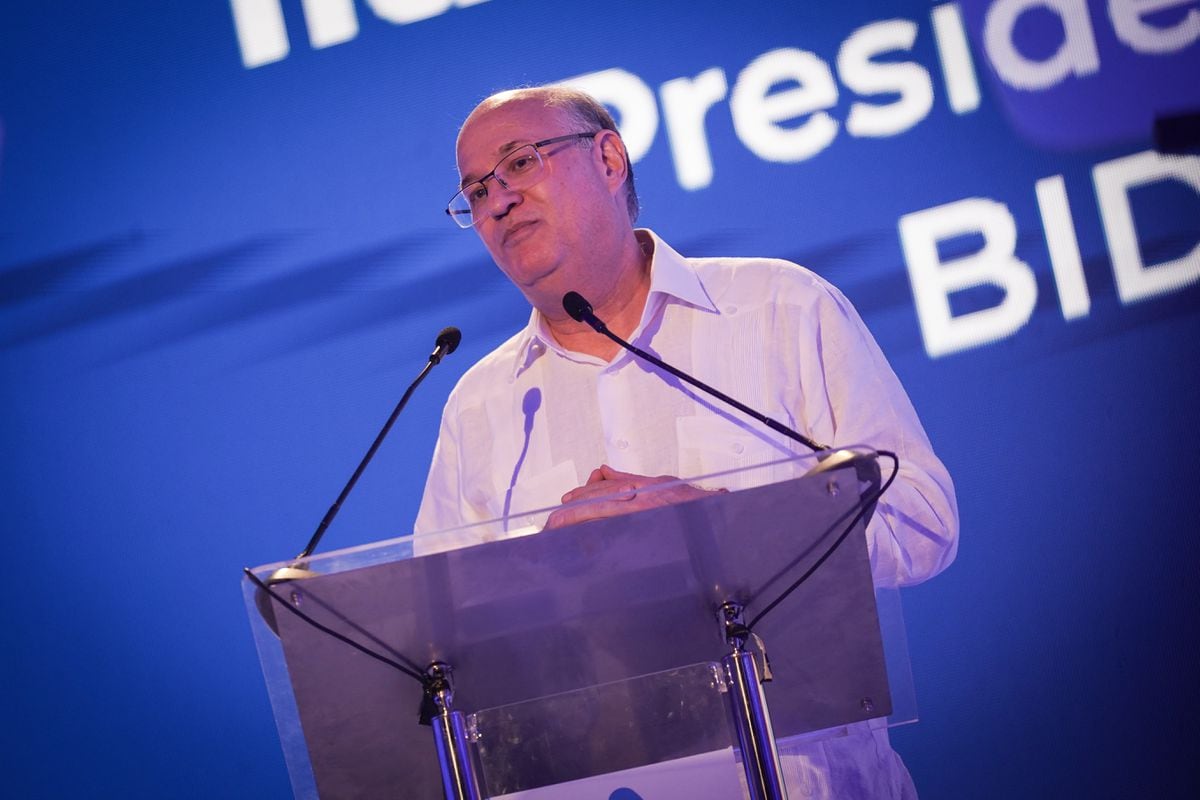Analysis: importance of the new Constitution of Chile 4:52
(CNN) -
Elisa Loncón, a Chilean linguist, grew up in a "ruka," a traditional wood and straw hut where indigenous Mapuche people live in rural areas of south-central Chile.
She went to school in the nearest town, where she was the only indigenous girl in her class and had to endure being discriminated against on a daily basis.
But giving up the opportunity for education was not an option: Her mother dropped out of school in third grade, tired of walking long hours barefoot to get to her classroom, while her father didn't learn to read until she was 17.
They wanted something better for her.
Today, Loncón, 58, has a master's degree and two doctorates.
She is also one of the 155 members of the new constituent assembly charged with drafting the country's new constitution.
Winners and losers of the elections in Chile 2:53
After more than a year of social unrest and popular discontent, Chile is entering a new stage.
In October 2019, a subway fare increase sparked mass protests and riots across the country, forcing conservative President Sebastián Piñera to accept a referendum to rewrite the constitution inherited from the bloody dictatorship of General Augusto Pinochet.
As a result, last October, more than 78% of Chilean voters approved the constitutional change, and last month, they voted again to elect the members of a constituent assembly.
Will a new constitution be able to solve Chile's old problems?
This Sunday, the assembly had its first official session, starting a process that should last up to a year and produce a text that will be ratified through a new plebiscite. This is historic not only because it symbolically ends the legacy of Chile's authoritarian regime. It is also a unique opportunity for any country to set new standards for the 21st century.
Chile's constitutional assembly is expected to try to limit the privileges of an elite with dominant control over political power, which still acts as an oligarchy.
At the center of the constitutional debate will be whether or not to eliminate an existing section that regulates the power of the state to develop business activities, which most Chileans believe would lead to new social welfare policies.
The majority of the assembly members also aim to promote greater civic participation and better protection of the environment in the new constitution.
advertising
Unprecedented diversity and gender parity
Since it was elected, Chile's constitutional assembly has drawn attention throughout Latin America both for its political, racial and cultural diversity and for the uncertainty that surrounds it. Conservatives worry that it cannot generate a balanced charter in a country where the voice of those who have felt marginalized has grown louder.
The composition of the assembly is undoubtedly a change for politics in Chile, with 155 members that together reflect the strong rejection of Chileans to the established political class: the coalitions of the center-left and right that have shared power since the return. Democracy in 1990 suffered a severe blow, obtaining only 16% and 24% of the seats, respectively. In contrast, independent candidates and newcomers from left-wing political parties and social movements have had their moment of glory, garnering 60% of the vote.
“There is a lot of uncertainty around the process because you have a group of people who are not professional politicians, they are somewhat inexperienced and unpredictable.
It is difficult to know to what extent they are willing to commit, ”says Oliver Stuenkel, professor of International Relations at the Fundaçao Getulio Vargas (FVG) in Sao Paulo and a non-resident scholar at the Carnegie Endowment for International Peace.
"But I can't think of a more democratic and inclusive way to do it," he adds.
Loncón is a good example of the diversity of this assembly.
It is both female and indigenous: two groups that have found new influence in the constitutional process.
The Chilean assembly is the first in the world to have gender parity (77 members are women) and the first in the country's history to include designated seats (17) for indigenous representatives.
It also includes environmentalists, feminists, members of the LGBTQ + community, and Chileans from across the social spectrum.
Lawyers, political scientists, engineers and historians will coexist with social activists, housewives and school bus drivers, among others.
The average age of assembly members is 44 years old.
Many of them participated in the protests in October 2019.
Chile's current constitution was drafted under the influence of the neoliberal model of the University of Chicago economist Milton Friedman.
Despite its many amendments, most Chileans consider it too free-market oriented and blamed for the country's stark inequalities.
Second day of constituent election in Chile 2:48
According to the World Inequity Lab, a research center focused on the study of the distribution of income and wealth around the world, Chile is the most unequal country in Latin America, where the 10% at the highest level concentrates 60% of the average national income.
It is a reality that most Chileans are tired of.
In 2020, the "Bicentennial Survey" that has been measuring cultural indicators annually since 2010, showed that 77% of Chileans believe that there is a "great conflict" between rich and poor.
In this context, many see the new constitution as the solution.
“Chile is opening up to new political actors.
We were called to write something different, ”Loncón says.
Tomás Laibe is a 30-year-old political scientist and LGBTQ + activist who was elected to the assembly in the southern city of Puerto Aysén.
He is a member of the Socialist Party who believes that his generation is transforming the way politics is done.
The ruling elite, used to making top-down decisions and protecting their own economic interests, is being wiped out, he says.
«This is the first time that institutional politics resembles real Chile.
We will not have men talking about women's issues, heterosexual people discussing sexual diversity, or white people talking about the needs of indigenous communities.
We will do it ourselves because today we are better represented, "he adds.
The political disillusionment is real.
According to the »Bicentennial Survey», in 2020 only 10% of Chileans trusted the government and the figure plummets to 1% when it comes to Parliament.
Chilean President Sebastián Piñera shows the official document calling on the members of the assembly that will draft a new constitution to meet for their first session on July 4, at the La Moneda presidential palace in Santiago, Chile, on Sunday. June 20, 2021.
In search of consensus
There is still a lot of uncertainty about the outcome of this process.
The assembly leans markedly to the left and, so far, members on the other side of the political spectrum have been absent from the debate.
CNN contacted five voters from the right-wing coalition, but they all declined to comment.
Until the October referendum, the majority of the coalition had campaigned against changing the constitution.
But it is not just left against right.
Many assembly members come from groups generated by social movements that came together only for electoral purposes;
they are far from thinking the same way.
Even within parties, consensus is not a given.
"The different groups are not cohesive and even when the members of the more established political parties try to reach agreements within their cohort, dissenting voices rise," says Patricio Fernández, a journalist and writer from the center-left, who was elected as an independent in one of the districts of Santiago.
In the last month, constituents have met virtually to get to know each other.
Even at this initial stage, tensions arose when 34 members decided to demonstrate as a group called “Vocería de los Pueblos” and claimed that they refused to abide by the rules of the convention, which parties on both sides of the political spectrum agreed to before the referendum.
The People's Spokesperson called for "popular sovereignty" and demanded the release of what they consider to be political prisoners, among other things, which generated much criticism.
However, since then, their number has not stopped growing, and now they have 11 more constituents.
"This whole process is full of nuances," says Fernández.
"I did not like the sectarian tone of the People's Spokesperson statement, because we need to build a constitution on dialogue, not on imposition, but when they are spoken to individually, they are much less radical than it seems."
Elisa Giustinianovich, a 36-year-old chemical engineer who defines herself as an ecofeminist activist, is a member of “Vocería de los Pueblos”.
She lives in the southernmost region of Chile and was very active during the 2019 protests. She insists that the statement was not an ultimatum and regrets the "overreaction" it provoked in the media and among politicians on the right and center-left. .
“They called us everything: rebels, undemocratic, coup plotters.
It was brutal, ”he says.
The next few weeks will be crucial to see if the members of the assembly are really open to dialogue.
Conservatives fear that the constitutional process will degenerate into a populist path for a leader to consolidate executive power, as has happened in Bolivia and Venezuela.
But experts say that is unlikely;
Claudia Heiss, Ph.D. in political science and author of the book "Why do we need a new constitution?" Doesn't see it as a possibility.
«In Chile we are seeing an institutional response to a social uprising and its demands.
It is unprecedented in Latin America to have a process that begins as a revolution and becomes a convention with limited duties, "he says.
The figures alone could force the different political sectors to seek consensus, since none have the two-thirds majority needed to pass a bill or the one-third majority to veto.
Additionally, there is common ground to work on: Most constituents have shown that they are willing to move away from free-market-oriented public policies in areas such as health, education, and pensions.
Perhaps most importantly, if the convention succeeds in drafting a constitution that meets the needs of modern Chileans, it could have a major impact on the rest of Latin America.
“The region has no direction at the moment.
There is this endless cycle of instability, popular discontent, protests and the emergence of new leaders who propose change and then disappoint, ”says Stuenkel.
"If Chile does it well, it has the potential to become a country that sets an example for others."
constituent Assembly









